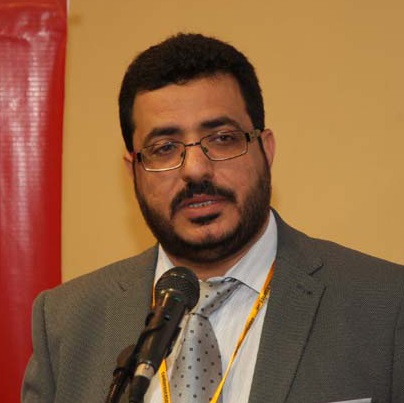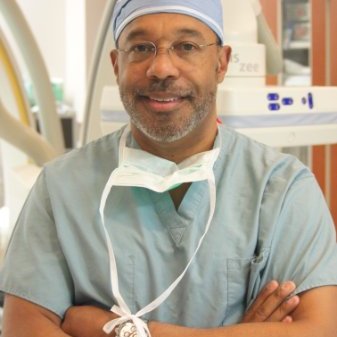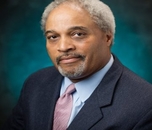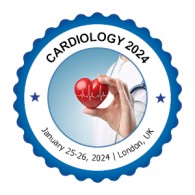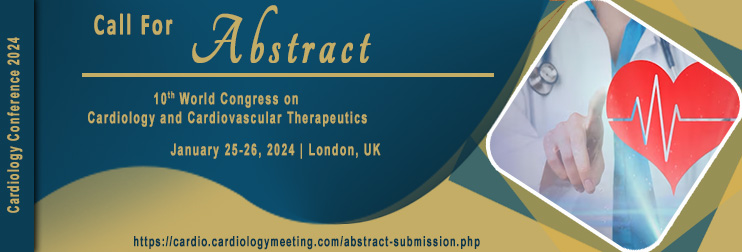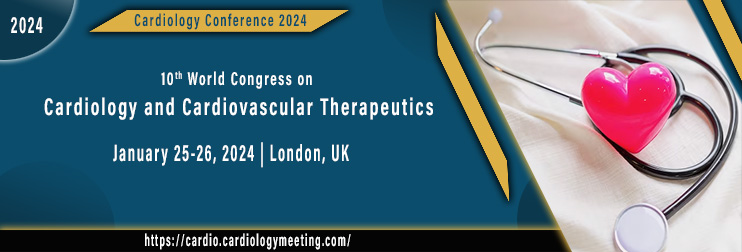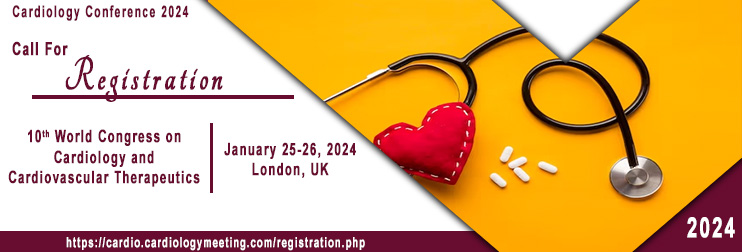About conference
Conference Series LLC LTD holds 2024 Cardiology and Cardiovascular Therapeutics (WCCCT 2024): Looking Ahead to the progress of Heart Failure and Heart Diseases Research. Cardiology Conference offers exceptional sessions, presentations for all levels of academic and networking opportunities with leaders in the field. One of the main features of this Scientific symposium or the cardiology conferences is that they cover a broad spectrum of subspecialties. The Poster sessions are packed with the latest emerging cardiovascular research, initiatives and the interactive lunch workshops which we make sure that happens takes breakout sessions to the next level.
With the support of 2024 Cardiology Committee Members, we have scheduled our “10th World Congress on Cardiology and Cardiovascular Therapeutics” around the theme ‘Highlighting Modern Techniques in Cardio and Cardiovascular Diseases. WCCCT 2024 is a premier educational event in the field of Cardiovascular Therapeutics and Cardiology that rotates between continents and is organized in collaboration with national and international Cardiac societies and associations. The World Congress on Cardiology and Cardiovascular Therapeutics is targeted to the international Cardiology, Cardiac Surgery, and Cardiovascular community as well as the other healthcare professionals involved in multidisciplinary Heart Care; thus, enabling professionals from worldwide to exchange their views on a wide variety of topics affecting heart and those suffering from heart diseases around the globe. WCCCT 2024 exists to advance the science and art of medicine and surgery related to the care of the heart. WCCCT 2024 works with many other organizations to achieve its aims of supporting patients and improving standards.
With the changing lifestyle of our modern society, cardiovascular diseases have become very common and are one of the major challenges for our modern society. As per a report published by the World Health Organization, out of all the other diseases, cardiovascular disorders result in the maximum number of deaths globally. A total death percentage of 35%, is only because of cardiovascular diseases. Hence a need for such summits or conferences has emerged where there can be a thought-provoking research discussions and a solution can be found for heart-related diseases. Cardiology conferences
With the unhealthy lifestyle and aging population heart disease or cardiovascular diseases and strokes have become major health risks for our modern society.
With the expanding demography of the senior citizens in the world, every country is increasing its budgetary allocation towards the health sector hence Cardiologist’s industry is expected to witness a dramatic growth by 2024.
Our major objective is to bring together researchers, leading experts, and the most respected clinicians in the field of healthcare, cardiology and cardiothoracic to share and exchange meaningful experiences and researches of various treatment procedures for cardio logical disorders. At the Prestigious event gathering, we make sure that the participants get to spend time so that they can connect to peers and colleagues, can exchange their ideas and information, and can get out in front of the latest trends and advancements in cardiac health.
The main objectives of the Cardiology and Cardiovascular Therapeutics Conferences are to:
-
To expand and improve the education of physicians through worldwide heart conferences, heart failure congress, cardiac surgery meetings, collaboration
-
To attain the best possible heart health for all people around the globe
-
Support the development of medical and clinical research on heart and cardiothoracic surgery
-
Provide a platform to present new ideas and treatments for heart and cardiothoracic surgery
-
Promote the scientists and physicians to share the research works and formulate new medical innovations
Scope and Importance
Maximum Countries over the globe now offer access to various medical educations. 2024 World Congress on Cardiology and Cardiovascular Therapeutics, a cardiology conference, provides a platform to encourage control and prevention of health against any cardiovascular diseases or cardio-logical disorders or stroke through a full range of information and access to the world education.
Session and track
Track 1: Cardiology - Future Medicine:
A cardiologist is a doctor who specializes in the studies of heart & its functions & also diagnosis, treatment and preventing diseases related to heart and blood vessels. You might also visit a cardiologist, so you can learn about your risk factors for heart disease and find out what measures you can take for better heart health. Cardiology – Future medicine is a field which is changing rapidly, new technologies as drug-eluting stents, assist devices for left ventricle, and novel inflammatory markers, and imaging modalities such as magnetic resonance imaging and 3D echocardiography.
Track 2: Cardiovascular Diseases:
Cardiovascular disease (CVD) is a class of diseases that involve the heart or blood vessels. CVD includes coronary artery diseases (CAD) such as angina and myocardial infarction (commonly known as a heart attack). Other CVDs include stroke, heart failure, hypertensive heart disease, rheumatic heart disease, cardiomyopathy, abnormal heart rhythms, congenital heart disease, valvular heart disease, carditis, aortic aneurysms, peripheral artery disease, thromboembolic disease, and venous thrombosis.
Track 3: Congenital Heart Disease:
A congenital heart defect is a problem with the structure of the heart. It is present at birth. Congenital heart defects are the most common type of birth defect. The defects can involve the walls of the heart, the valves of the heart, and the arteries and veins near the heart. They can disrupt the normal flow of blood through the heart. The blood flow can slow down, go in the wrong direction or to the wrong place, or be blocked completely.
Track 4: Pediatric Cardiology:
Pediatric cardiologists specialize in diagnosing and treating heart problems in children. In those children who might need heart surgery, pediatric cardiologists work closely with pediatric heart surgeons to determine the best treatments and interventions. A number of heart conditions can affect children. Some are structural differences they are born with. Others involve the electrical system that controls the heartbeat. Pediatric cardiologists are specially trained to diagnose and manage these problems.
Track 5: Cardiac Surgery:
Cardiac surgery, or cardiovascular surgery, is surgery on the heart or great vessels performed by cardiac surgeons. It is often used to treat complications of ischemic heart disease (for example, with coronary artery bypass grafting); to correct congenital heart disease; or to treat valvular heart disease from various causes, including endocarditis, rheumatic heart disease, and atherosclerosis. It also includes heart transplantation.
Track 6: Heart Failure:
Heart failure is a condition in which the heart can't pump enough blood to meet the body's needs. In some cases, the heart can't fill with enough blood. In other cases, the heart can't pump blood to the rest of the body with enough force. Some people have both problems. Heart failure develops over time as the heart's pumping action grows weaker. The condition can affect the right side of the heart only, or it can affect both sides of the heart. Most cases involve both sides of the heart. Heart failure is a very common condition. About 5.7 million people in the United States have heart failure. Both children and adults can have the condition, although the symptoms and treatments differ. The Health Topic focuses on heart failure in adults.
Track 7: Heart Devices:
Many cardiac devices are designed to help control irregular heartbeats in people with heart rhythm disorders. These irregularities are caused by problems with the heart’s electrical system, which signals the heart to contract and pump blood throughout the body.
Track 8: Cardiac Nursing:
Cardiac nursing is a nursing specialty that works with patients who suffer from various conditions of the cardiovascular system. Cardiac nurses help treat conditions such as unstable angina, cardiomyopathy, coronary artery disease, congestive heart failure, myocardial infarction and cardiac dysrhythmia under the direction of a cardiologist. Cardiac nurses perform postoperative care on a surgical unit, stress test evaluations, cardiac monitoring, vascular monitoring, and health assessments. Cardiac nurses must have Basic Life Support and Advanced Cardiac Life Support certification. In addition, cardiac nurses must possess specialized skills including electrocardiogram monitoring, defibrillation, and medication administration by continuous intravenous drip. Cardiac nurses work in many different environments, including coronary care units (CCU), cardiac catheterization, intensive care units (ICU), operating theatres, cardiac rehabilitation centers, clinical research, cardiac surgery wards, cardiovascular intensive care units (CVICU), and cardiac medical wards.
Track 9: Cardiac Transplantation:
A heart transplant, or a cardiac transplant, is a surgical transplant procedure performed on patients with end-stage heart failure or severe coronary artery disease when other medical or surgical treatments have failed. As of 2018, the most common procedure is to take a functioning heart, with or without transplanting one or both lungs at the same time, from a recently deceased organ donor (brain death is the standard) and implanting it into the patient. The patient's own heart is either removed or replaced with the donor heart (orthotopic procedure) or, much less commonly, the recipient's diseased heart is left in place to support the donor heart (heterotopic, or "piggyback", transplant procedure).
Track 10: Case Reports on Cardiology:
A case report on Cardiology gives an appropriate convention for all cardiologists by rendering their important clinical cases of late occurrence. Studying from medical cases provides valuable experience for clinicians, students and paramedical staff -members. Rare medical reports and conditions discovered through the latest methods of examination are energized. Moreover, studying diagnostic methods from medical cases and the interpretation of symptoms is significant to train and burgeon the thought processes which are being used in the clinical field.
Track 11: Cardiac Pharmacology:
Cardiovascular diseases as well as heart condition, arrhythmias and high blood pressure, is that the leading reason for morbidity and mortality globally. The prevention diagnosis and treatment of cardiovascular diseases. There are a unit various devastating conditions touching the centre and blood vessels, resulting in high demand for vas medicine. Cardiology disorders embrace in arteria diseases, heart failure and congenital heart defects.
Market analysis
COVID-19'S EFFECT ON THE WORLD MARKET FOR INTERVENTIONAL CARDIOLOGY DEVICE
2.1 OVERVIEW 282.2 COUNTRY PROFILE
2.1 North America 302.2.2 Latin America 302.2.3 Western Europe 312.2.4 Central & Eastern Europe 312.2.5 Asia-Pacific 322.2.6 Middle East 322.2.7 Africa 332.3 ANALYSIS BY MARKET SEGMENT 342.3.1 Best Case Scenario 342.3.2 Base Case Scenario 352.3.3 Worst Case Scenario 36.
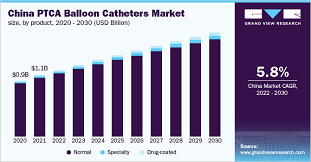
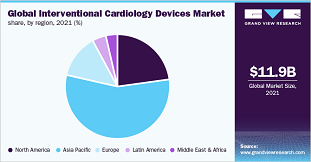
Market Overview
One of the most active and quickly growing sectors, according to our healthcare specialists, is precision cardiology. Over the forecast period of 2021–2031, the global market for precision cardiology is expected to expand at a CAGR of 12.90%. Some reasons, such as the rising prevalence of cardiovascular diseases, the increased emphasis on early cardiovascular disease screening, and the declining cost of sequencing, are what are driving the market.
Due to the growing prevalence of cardiovascular disorders, increased emphasis on early cardiovascular disease screening, and declining sequencing costs, the precision cardiologymarket is now seeing growth. Additionally, businesses are putting their attention on the creation of precision cardiology tests based on cutting-edge sequencing technology, which is anticipated to help doctors make better-informed clinical judgments in the area of cardiovascular care. Advanced precision cardiology testing have made it possible for researchers to devise successful methods for finding novel genetic biomarkers linked to cardiovascular disorders that might be used to create new treatments.
Market Research for the Cardiology, Heart Disease, and Heart Failure Summit and Expo
According to business intelligence provider GBI Research, the cardiovascular disease market, which includes a variety of disorders like hypertension, coronary artery disorders, cardiac arrest, dyslipidaemia, and thrombotic events, is expected to increase from $129.2 billion in 2015 to $146.4 billion by 2022, at a very modest compound annual growth rate of 1.8%.
The size of the global cardiology market, estimated at USD 116.9 billion in 2017, is projected to increase at a CAGR of 7.4% from 2017 to 2022. Congenital heart defects becoming more widespread and the availability of technologically advanced cardiovascular valves, grafts, and patches are two key elements that are anticipated to propel growth throughout the projection period.
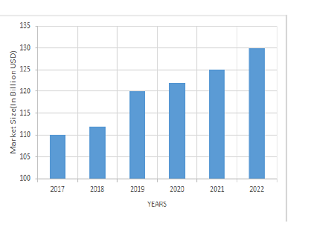
The WHO report from May 2018 states that the rise in cardiac disorders is to blame for the region's high death rate in Asia and the Middle East. The global market for cardiology therapeutics is expanding quickly as new medications and technologies hit the market. Our specialist in cardiology market research believes that one of the main causes of the current epidemic of cardiovascular illness is diabetes. The primary factor fuelling the expansion of the cardiology failure market is the rising prevalence of chronic disorders including diabetes and heart attacks. Due to the possible impact of recently approved pharmaceuticals entering the market, the size of the cardiology market is anticipated to increase in the upcoming years.
The heart failure medication Entrust from 'Novartis' was released onto the market in July 2015, and GBI Research anticipates that during the projected period, its sales would rise significantly. A combination medicine called Entrust has demonstrated effectiveness in clinical studies. The medicine has a very expensive cost, which totals around $4 500 annually per patient, and is expected to generate a very high revenue of $5.7 billion by 2022.
Scope and Importance
A constantly evolving area of medicine is cardiology. Both young and old people in this day and age are susceptible to cardiac conditions, which are primarily brought on by their way of life and poor hygiene. The study of cardiology has grown significantly in relevance throughout time as a means of combating these disorders and their causes. A catheter is used in interventional cardiology, a branch of cardiology, to perform surgery with less risk and little blood loss on patients and clinicians. Interventional cardiology uses minimally invasive techniques to treat problems.
In the areas of material sciences, interventional cardiology, and cryopreservation, some of the scientific developments are also anticipated to fuel the market for cardiac surgery devices. Among the few factors anticipated to boost growth over the forecast period are the use of expanded polytetrafluoroethylene for cardiovascular patches, the development of Tran's catheter heart valves, and the process of minimally invasive technologies, such as Tran's catheter aortic valve implantation or Tran's catheter aortic valve replacement. Another significant technical development in cardiac surgery therapies that is anticipated to have a favourable impact on the market is the modification of cryopreservation techniques by key players like CryoLife.
The market for interventional cardiology devices is expected to grow from its current value of USD 13.9 billion in 2020 to USD 25.3 billion by 2027, at a CAGR of 9.3% over the forecast period (2021-2027). New developments in the field of interventional cardiology devices are made possible by increasing investments in research and development. The market for interventional cardiology devices will also expand as a result of the expansion in minimally invasive operations because they lead to fewer patient injuries, quicker recoveries, and shorter hospital stays. The market for interventional cardiology devices is also expected to rise as a result of rising rates of diabetes and coronary artery disease.
Market Dynamics:
Global geriatric population growth, rising rates of lifestyle-related diseases like obesity, diabetes, and hypertension, and rising prevalence of cardiovascular disorders like coronary artery disease, cardiac arrest, stroke, arrhythmia, and congenital heart disease are the main factors driving the global interventional cardiology market revenue growth. According to a recent study by the Centres for Disease Control and Prevention (CDC), approximately 18.2 million Americans have coronary artery disease, making it one of the most prevalent cardiac conditions in the nation. And in June 2020, the British Heart Foundation reported that there were more than 2.3 million cases of coronary artery disease in the United Kingdom.
Other significant factors driving the growth of the global interventional cardiology market include technological developments in interventional cardiology devices that increase efficiency, accuracy, and safety as well as the quick adoption of these highly advanced devices in healthcare facilities like hospitals and ambulatory surgical centres. Additionally, rising demand for minimally invasive cardiac surgeries, regulatory approvals for new and more sophisticated cardiology solutions, government initiatives to increase public awareness of heart health, and quickly developing healthcare infrastructure all contribute significantly to the market's revenue growth.
Technology advancements in interventional cardiology devices that boost efficiency, accuracy, and safety as well as the rapid uptake of these highly sophisticated devices in healthcare facilities like hospitals and ambulatory surgical centres are additional significant factors fuelling the growth of the global interventional cardiology market. The market's revenue growth is also significantly influenced by the increasing demand for minimally invasive cardiac surgeries, regulatory approvals for novel and advanced cardiology solutions, government campaigns to raise public awareness of heart health, and rapidly evolving healthcare infrastructure.
The increase in the world's geriatric population, the rising burden of lifestyle diseases like diabetes, obesity, and hypertension, the rising prevalence of cardiovascular diseases like coronary artery disease, and the rising adoption of highly advanced interventional cardiology devices with higher accuracy and improved efficiency are the main drivers of the market for interventional cardiology devices' steady revenue growth. According to a recent report by the Centres for Disease Control and Prevention (CDC), coronary artery disease is one of the most prevalent heart disorders in the United States. The study estimates that the condition affects 18.2 million people in the United States.
Furthermore, the British Heart Foundation reported that over 2.3 million people in the U.K. had been given a diagnosis of coronary artery disease in June 2020. Increased government approvals for new and more cutting-edge cardiology solutions and devices, as well as a rising demand for minimally invasive heart surgery, are additional factors driving the growth of the global interventional cardiology devices market. However, due to an increase in product failures and recalls as well as the accessibility of alternative treatments for cardiovascular disease, market revenue growth is severely constrained.
The market for interventional cardiology devices is expanding as a result of an increase in unhealthy lifestyle habits.
The market for interventional cardiology devices is expected to rise as a result of bad lifestyle choices that raise the risk of coronary artery disease, such as consuming saturated fats, too much salt, drinking alcohol, and smoking. In addition, heavy tobacco use and a lack of exercise also contribute to the market's expansion. Obesity and coronary artery disease are two conditions brought on by physical inactivity. In 2016, there were more than 1.9 billion overweight adults in the world who were 18 years of age and older, and 23% of them had coronary artery disease. The incidence of serious cardiovascular diseases is also attributed to rising dietary abnormalities, which is fuelling the global market for interventional cardiology devices to expand.
Growing Coronary Artery Diseases Are Fuelling the Global Market for Interventional Cardiology Devices
The global market for interventional cardiology devices is expanding as a result of the increased incidence of coronary artery disorders. In the United States in 2017, 18.2 million adults had coronary artery disease, according to the Centres for Disease Control and Prevention (CDC). Two deaths occur as a result of coronary artery disease for every 10 deaths. Excessive levels of stress and high cholesterol are also important risk factors for coronary heart disease. Additionally, as more people develop coronary artery disease from significant risk factors including diabetes and hypertension, the market for interventional cardiology devices is expanding.
COVID-19's effects on the market for interventional cardiology devices worldwide
COVID outbreaks are causing serious health issues all over the world. To stop the spread of coronaviruses, the governments of various countries have implemented a variety of measures, including lockdowns, hand sanitization, and travel restrictions. In accordance with NHS recommendations, hospitals are adopting online and video consultation to reduce the risk of exposure to patients and employees. Numerous cardiovascular treatments were also decreased, including computed tomography, coronary angiography (CTCA), and dobutamine stress echocardiograms, as patients were reluctant to visit hospitals for fear of getting the virus (DSE). Additionally, the lockdown and travel restrictions make it difficult for patients to go to the hospitals, which has a detrimental effect on the market for interventional cardiology devices. Additionally, the industry is impacted by the declining number of outpatients. Because of the corona epidemic, fewer operations are being conducted, which lowers the need for interventional cardiology equipment. Patients are afraid that if they have surgery, they would contract COVID. These elements have a detrimental effect on the market for interventional cardiology devices.
Competitive Environment
Medtronic, Boston Scientific Corporation, Abbott, Edward Life Sciences Corporation, Cardinal Health, vascular, B. Braun Melsungen, Terumo Corporation, Biosensors International Group, and BIOTRONIK SE & Co. KG are a few of the major companies in the global interventional cardiology devices market. Other major companies include Johnson & Johnson, Becton Dickinson, Teleflex Incorporated, Micro Port Scientific Corporation, Cook Medical Inc., GE Healthcare, W. L. Gore All of the major participants in the sector have taken action to introduce new innovations and technologies.
They are also obtaining a competitive edge in the market thanks to strategic planning. To make sure that there is a sufficient supply of interventional cardiology devices, the major players are also investing in the supply chain.
Market Report Coverage
|
Market for Precision Cardiology
|
|
Year of Base
|
2020
|
2021 market size
|
$1,065.6 Million
|
|
Forecast Timeframe
|
2021-2031
|
Value Forecast and Estimate through 2031
|
$3,584.6 Million
|
|
CAGR for the Projection Period
|
12.90%
|
Quantity of Tables
|
15
|
|
Amount of Pages
|
242
|
Amount of Figures
|
188
|
|
Market division
|
• Offering - Product and Service
• Sample - Blood and Non-Blood
• Technology - Sequencing, Polymerase Chain Reaction (PCR), Microarray, and Other Technologies
• Application - Cardiomyopathy, Arrhythmia, Aortopathy and Vascular Diseases, Familial Hypercholesterolemia (FH), Congenital Heart Defects and Syndromes, and Other Applications
• End User - Hospitals and Diagnostic Laboratories, Academic and Research Institutes, and Other End Users
|
|
Segmentation by region.
|
• North America - U.S., and Canada
• Europe - Germany, France, U.K., Italy, Spain, Switzerland, and Rest-of-Europe
• Asia-Pacific - China, India, Japan, South Korea, Australia, and Rest-of-Asia-Pacific
• Latin America - Brazil, Mexico, and Rest-of-Latin America
• Rest-of-the-World
|
|
Market Growth Accelerators
|
• Rising Burden of Cardiovascular Diseases
• Growing Attention on Early Cardiovascular Disease (CVD) Screening
• Reduced Sequencing Costs
|
|
Market Obstacles
|
• Regulations in the Precision Cardiology Ecosystem Are Not Well-Established
• A lack of facilities for high-complexity testing
• Currently Used Conventional Cardiovascular Disease (CVD) Tests Have High Diagnostic Confidence
|
|
Market Possibilities
|
• Huge Potential for NGS-Based Cardiology Test Adoption in Emerging Markets
|
|
Major Companies Listed
|
ARUP Laboratories, CENTOGENE N.V., Euro fins Scientific, Exact Sciences Corporation, Fulgent Genetics, Inc., Illumine, Inc., Invitee Corporation, Konica Minolta, Inc., Laboratory Corporation of America Holdings, OPKO Health, Inc., Erasure Technologies, Inc., PerkinElmer Inc., Quest Diagnostics Incorporated, Sema4 Topco, Inc., Thermo Fisher Scientific Inc., Genocide, Deviser Diagnostics AB
|
Past Conference Reports
The 9th World Congress on Cardiology and Cardiovascular Therapeutics (WCCCT 2023) hosted by Conference Series LLC Ltd took place in Vancouver, Canada during July 06-07, 2023. It was organized by Conference Series LLC Ltd and generous response was received from the Editorial Board Members of our Supporting Journals as well as from eminent scientists, talented researchers, and young student community. Researchers and students who attended from different parts of the world made the conference one of the most successful and productive events in 2023 from Conference Series LLC Ltd.
The program witnessed thought-provoking keynote and plenary presentations from experts in the field of Nutrition, highlighting the theme, “Progressing into the Future of Heart Science".
The meeting was carried out through various sessions, in which the discussions were held on the following major scientific tracks:
-
Cardiology
-
Clinical & Experimental Cardiology
-
Molecular and Cellular Cardiology
-
Pediatric and Neonatal Cardiology
-
Geriatric Cardiology
-
Cardiology: Women’s health
-
Cardiac Nursing
-
Cardiovascular Disease
-
Cardiothoracic Surgery
-
Heart Failure
-
Interventional Cardiology
-
Invasive cardiology
-
Hypertension
-
Cardiovascular Pharmacology and Toxicology
-
Cardiovascular drugs
-
Cardiovascular Engineering
-
Cardiac devices & Imaging Techniques
-
Cardiac Regeneration strategies
-
Research & Advances in Cardiology
-
Cardiology Case Reports
The highlights of the meeting were the keynote lectures from:
-
Wilawan Thirapatarapong, Siriraj Hospital-Mahidol University, Thailand
-
Clarisse E Cledera, Chinese General Hospital, and Medical Center, Philippines
WCCCT 2023 played an important role in promoting multidisciplinary interactions between science and medicine to enhance research in Nutrition. The program covered current and emerging research innovations in the field of Cardiology
We are obliged to the various delegates from companies and institutes who actively took part in the discussions. We sincerely thank the Organizing Committee Members and Editorial board of WCCCT 2023 for their gracious presence and continuous support throughout the proceedings of this event. With the valuable feedback and generous response received from the participants of the event, Conference Series LLC Ltd would like to announce the commencement of the “9th World Congress on Cardiology and Cardiovascular Therapeutics” during July 06-07, 2023 Vancouver, Canada.
